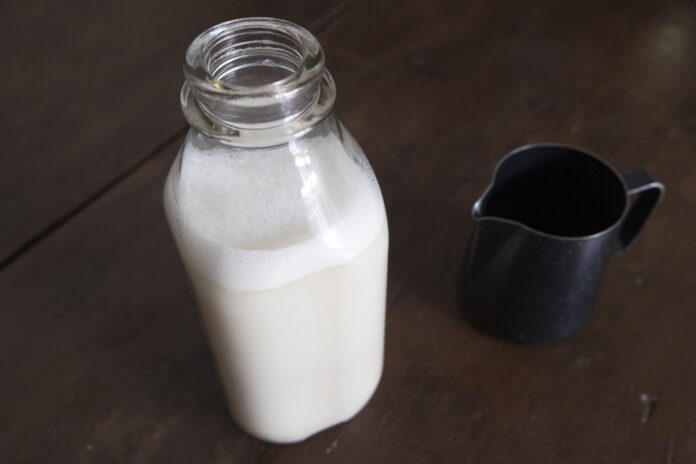You can’t stop progress, it seems, and these years are certainly not going to contradict the saying. Who would have thought, 20 years ago, that we would consider turning milk into fuel? And yet, the idea is well on its way to materializing in the vast world of fuels. The milk will also be used to make a biofuel, too.
Innovation starts from Canada, more specifically from neighboring Ontario. A distillery in this province (the Ontario Dairy Distillery) is currently teaming up with an association in Michigan (the Michigan Milk Producers Association, commonly known as MMPA) to build a plant that will transform a dairy by-product (the permeate) into ethanol, and so biofuel. This association, which is in fact an agricultural cooperative bringing together more than 1,000 dairy producers, will thus take advantage of permeate, a by-product of milk that we now see in a new light.
As is often the case, the idea originated in a completely different realm to begin with. In fact, the Ontario distillery had first developed a technique to turn milk permeate into vodka. The product does exist today under the name of Vodkow. The distillery also used the same permeate to make hand sanitizer in 2020.
In this plant, with the permeate, we already produce 14,000 tons of milk premix per year, a material used as an additive in the field of animal feed.
That said, the biofuel avenue is even more appealing. In a desire to create even more value for its dairy producer members, the MMPA has therefore decided to partner with the Ontario distillery to build another form of distillery, still in Michigan, very close to the existing plant. .
This new plant will be specially dedicated to the transformation of milk permeate into ethanol on a large scale. In fact, we want to produce 2.2 million gallons of ethanol per year. A permeate ethanol that, when blended into transportation fuel, can displace no less than 14,500 tonnes of carbon per year. With such results, it is believed that the carbon footprint of milk that is processed in Michigan can be reduced by 5%.
It is precisely this concern to reduce the carbon footprint that, at the base, seduced the president of the Ontario Dairy Distillery. The man was inspired by the MMPA dairy farmers’ commitment to sustainability.
The use of a dairy by-product to reduce the carbon footprint of dairy products is indeed a superb innovation to contribute significantly to the desired carbon neutrality objective. In this favorable context, the idea has made its way in a good way, so much so that it will materialize soon.
The construction of this ethanol processing plant in Michigan completes the MMPA’s shift towards sustainable development. It provides a great opportunity for the association to use new technologies that further enhance current processing operations, while diversifying the markets served by the MMPA.
From 2025, we can therefore expect a new biofuel to see the light of day, all thanks to the contribution of the large bovine family at its base.
In its trajectory, the milk by-product will therefore leave from the Michigan milk processing plant and will be transported to the dairy distillery erected nearby. There, it will be fermented using distillery technology, producing ethanol, which will then be processed to remove all traces of moisture.
Needless to say, this new process will be welcome in a world that is betting on sustainability more than ever. On this path, we are talking here about a material that will be valuable to allow sustainable use for both thermal vehicles and agricultural machinery.















